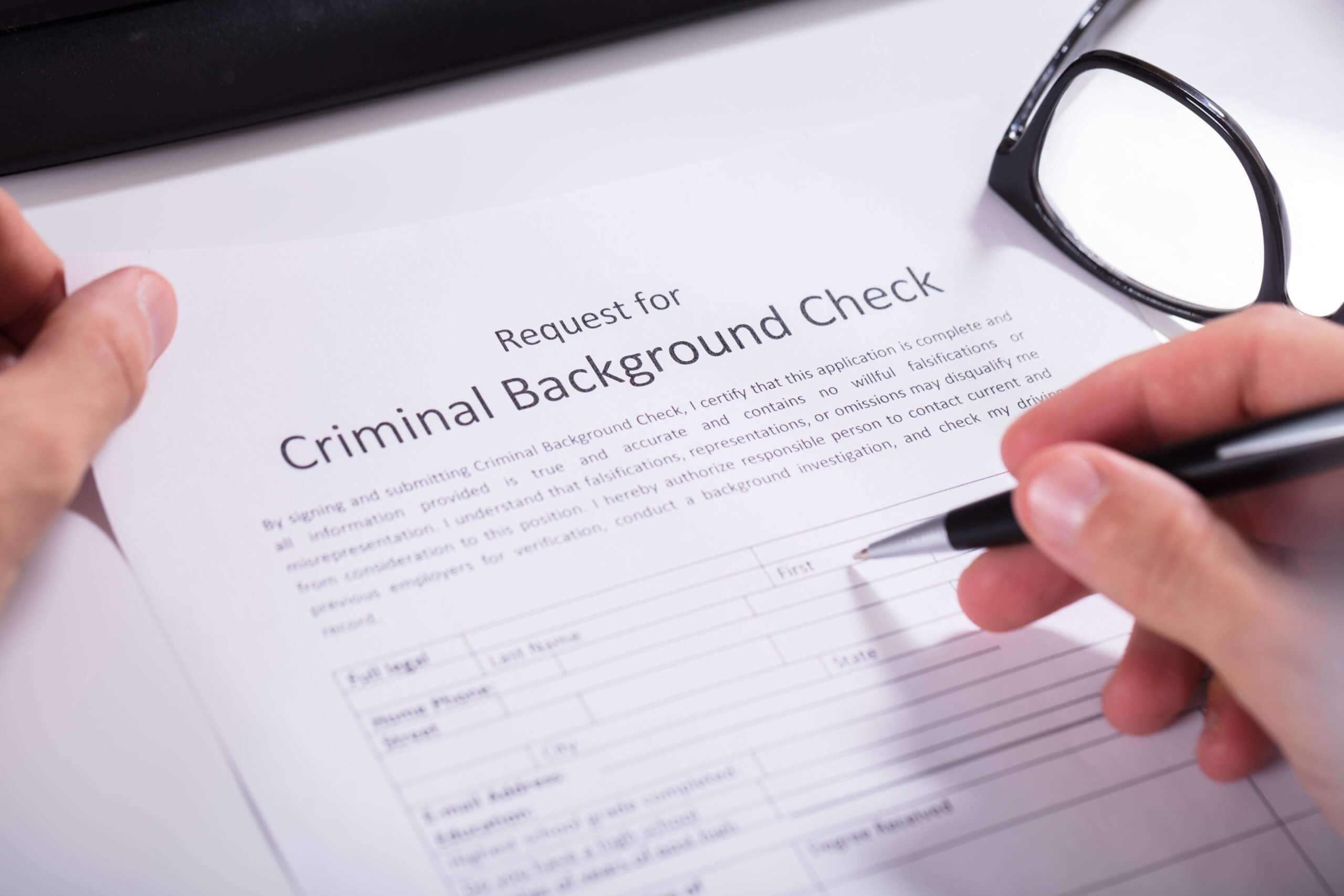On November 14, 2023, the FDIC published a notice of proposed rulemaking to update the Section 19 regulations and bring them into conformance with the FHBA, nearly a year after the act was signed into law by President Biden in December 2022. The comment period ended on January 16, 2024.
Quick Hits
- The FDIC’s proposed rules would bring its current Section 19 regulations in line with the amendments brought by the Fair Hiring in Banking Act.
- The proposed rules would expand the types of criminal offenses excluded from Section 19, including certain drug-related offenses, and the scope of expunged, sealed, or dismissed offenses that are excluded.
- The proposed regulations would also provide key definitions for certain “older” offenses that the FHBA excludes from Section 19.
Still, the FDIC’s highly-anticipated proposed regulations leave some unanswered questions, including the scope of offenses that will fall under the definition of “de minimisoffenses” entitled to receive an automatic waiver and for which the FDIC will not require an application.
For now, employers may want to take note of the proposed changes intended to align the FDIC’s regulations with Section 19 as amended by the FHBA.
Section 19 and the FHBA
Section 19 generally prevents covered institutions from hiring and/or continuing to employ individuals with criminal history records that Section 19 prohibits—specifically crimes “involving dishonesty or a breach of trust or money laundering”—unless such an individual has applied for a waiver and the FDIC has granted its consent.
The law has historically required financial institutions to conduct criminal background checks on job candidates, regardless of whether state or local law prohibited employers from considering such criminal histories in hiring and/or employment decisions and has required individuals with covered offenses to apply to the FDIC for a waiver.
On December 23, 2022, President Biden signed the FHBA into law as part of the National Defense Authorization Act for Fiscal Year 2023, significantly revising Section 19 and the restrictions on individuals with criminal records. The FHBA, which took immediate effect, narrowed the types of criminal offenses covered by Section 19, the effects of completing a sentence or pretrial diversion program, and the FDIC’s procedures for reviewing Section 19 waiver applications.
The proposed FDIC regulations would align the current Section 19 regulations with the FHBA’s amendments to Section 19.
Among other things, the proposed rules:
- seek to align Section 19 with the U.S. Congress’s directive that the FDIC further ease restrictions to allow banks to hire individuals with criminal records;
- specify the criteria for certain older offenses that the FHBA excludes from the scope of Section 19;
- expand the scope of expunged, sealed, or dismissed convictions that the FHBA excludes from Section 19;
- exclude certain drug-related crimes from the covered offenses and require the same evaluation of the elements of a drug-related crime to determine whether Section 19 requires an application;
- list the offenses excluded from Section 19 as “designated lesser offenses”; and
- outline the criteria for de minimisoffenses outlined in the FHBA, such as writing bad checks.
Certain Older Offenses Under the FHBA
The FHBA excluded certain offenses from Section 19 based on how long ago the offense was committed or how long ago an individual was released from incarceration for an offense. Section 19 now excludes offenses that occurred seven or more years ago or offenses where the individual was released from incarceration five or more years ago. Further, the FHBA no longer requires individuals to apply for a waiver if the individual committed the offense before the age of twenty-one and if it has been at least thirty months since the sentencing.
The FDIC’s proposed regulations would define when the clock starts for purposes of determining whether an older offense might be excluded from Section 19. The proposed rules define the term “offense occurred” or “offense committed” to mean “the last date of the underlying misconduct” for the purpose of determining whether an older offense might be excluded. If there is more than one covered offense at issue, the proposed regulations would define the term “offense occurred” or “offense committed” to mean “the last date of any of the underlying offenses.”
In an analysis of the proposed revisions, the FDIC admitted that the FHBA’s revisions would result in a “paradigm shift concerning Section 19.” Before the FHBA, individuals with covered offenses faced a potential lifetime ban from working for financial institutions without an FDIC waiver. The FDIC stated that the result of the FHBA’s changes to the language of Section 19 would be that “all state offenses and the vast majority of federal offenses will be removed from the scope of Section 19 after seven years—at the latest.”
Expunged, Sealed, and Dismissed Criminal Records
The FHBA excluded certain offenses from Section 19 where an “order of expungement, sealing, or dismissal” (emphasis added) expunged, sealed, or dismissed has been issued in regard to the conviction in connection with such offense,” and “it is intended by the language in the order itself or the legislative provisions under which it was issued, that the conviction shall be destroyed or sealed form the individual’s” (emphasis added) criminal record. However, the FHBA does not specify whether Section 19 also excludes convictions expunged, sealed, or dismissed by operation of law.
In 2020, the FDIC issued a final rule loosening the restrictions under Section 19 by expanding the definition of “expungement.” The FDIC’s analysis of the proposed revisions noted that the new statutory language of Section 19 now codifies the FDIC’s prior understanding that Section 19 excludes “certain expunged, sealed, or dismissed convictions.”
Further, the proposed rules would expand the scope of excluded offenses to include convictions expunged, sealed, or dismissed by operation of law and not just by court order. The FDIC stated that the interpretation described in the proposed regulations “would harmonize the FDIC’s current regulations concerning expunged and sealed records with the statutory language and provide a more comprehensive framework as to such records.”
Drug-Related Offenses
The FHBA expanded the offenses that Section 19 excludes from the definition of crimes “involving dishonesty” and for which an application for waiver is no longer required, including offenses involving “simple possession of a controlled substance and possession with intent to distribute a controlled substance.”
Although the FHBA’s changes to Section 19 did not specifically exclude other drug-related offenses, the proposed regulations would remove the presumption that Section 19 covers such offenses. If adopted as proposed, the regulations for Section 19 would exclude: (i) “a misdemeanor criminal offense committed more than one year before the date on which an individual files a consent application, excluding any period of incarceration” and (ii) “an offense involving the possession of controlled substances.”
At minimum, the regulations would expressly exclude “simple possession of a controlled substance and possession with intent to distribute a controlled substance.” The proposed regulations might also exclude other drug-related offenses that, by statutory elements or court interpretations of statutory provisions, do not involve dishonesty, breach of trust, or money laundering.
Further, the proposed regulations interpret “offense committed” for purposes of misdemeanor offenses to mean “the last date of the underlying misconduct” for a single offense and “the last date of any of the underlying offenses” for multiple offenses.
Designated Lesser Offenses
The FHBA excludes from Section 19 as “designated lesser offenses” using a fake identification, shoplifting, trespassing, fare evasion, driving with an expired license or tag, and other low-risk offenses that the FDIC may designate, so long as it has been more than one year since the conviction.
In the proposed regulations, the FDIC did not specify any “designated lesser offenses” other than those specifically listed in the FHBA. Instead, the proposed regulations would provide that Section 19 does not apply to offenses for using fake identification, shoplifting, trespassing, and driving with an expired license or tag, if a year or more has passed since the individual was convicted or entered into a pretrial diversion program for the offense.
De Minimis Offenses
The FHBA permitted the FDIC to exclude other “de minimis offenses” that the FDIC could determine by rule, including the writing of bad checks so long as the aggregate value of all the bad checks is $2,000 or less.
The proposed regulations specify other criteria for bad checks to meet the de minimisexemption. In addition to the aggregate value of all bad checks totaling $2,000 or less, a payee of the bad check cannot be an insured depository institution or an insured credit union and the individual cannot have more than one other de minimis offense.
The FDIC stated in its analysis that it is “reevaluating its current approach” to de minimis offenses in light of the new statutory language and it is seeking comment on whether its current approach is appropriate and whether the FDIC should designate other offenses as de minimis.
Next Steps
The FHBA and the proposed FDIC regulations comes as part of a broader push to reduce the criminal history records that employers can consider when making hiring and/or employment decisions. Several states and localities have enacted laws prohibiting employers from asking job candidates about some or all criminal history records and/or from using or considering such records when making employment-related decisions.
Ogletree Deakins will continue to monitor developments and will provide updates on the Background Checks and Employment Law blogs.
Follow and Subscribe








